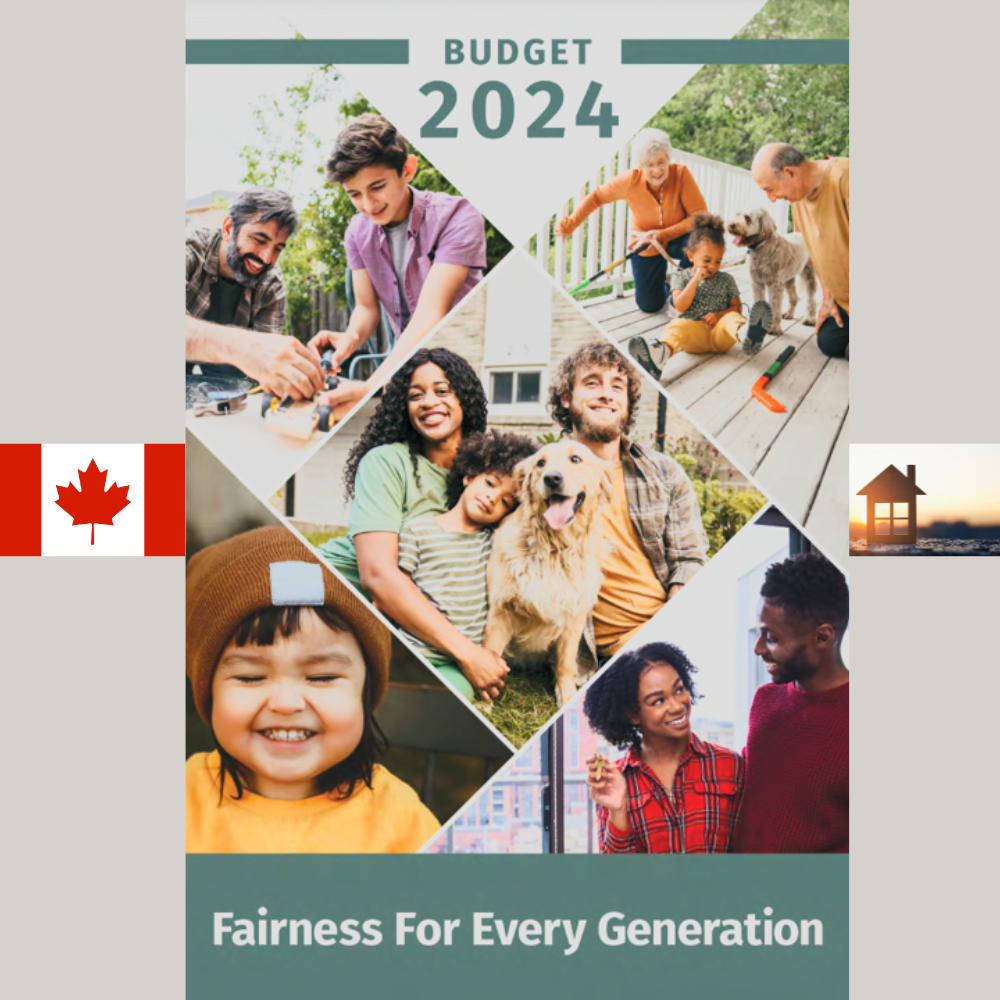2024 Canada Housing Budget: A Closer Look at New Policies and their Impact
In a decisive move aimed at addressing the pressing housing issues in Canada, the federal government unveiled a substantial $52.9 billion in new spending plans in the 2024 federal budget. Given the recent surge of housing-related policy announcements, it comes as no surprise that housing remains a top priority. This financial commitment aims to address affordability challenges, particularly for young Canadians aspiring to homeownership, and also introduces tax adjustments targeting wealthier segments of the population.
2024 Canada Housing Budget Overview
The 2024 budget paints a picture of a government taking aggressive steps to manage and eventually reduce the national deficit. Starting at a projected $39.8 billion this fiscal year, the deficit is expected to shrink to $20 billion by the 2028-29 fiscal year. This fiscal strategy underlines the government’s commitment to sustainable economic management while prioritizing crucial sectors like housing.
Easing Homeownership Challenges
A significant portion of the budget is devoted to making homeownership more accessible for young Canadians. These measures include extending the maximum amortization period from 25 years to 30 for first-time buyers of new-build properties with a down payment of less than 20%. This extension should make monthly mortgage payments more affordable, enabling more young people to enter the housing market.
In addition to amortization changes, the Home Buyers’ Plan now allows first-time buyers to withdraw up to $60,000 tax-free from their Registered Retirement Savings Plans (RRSPs) for home purchases, up from the previous limit of $35,000. This adjustment is complemented by an extended grace period for beginning repayment, adding flexibility for new homeowners managing their finances.
Tax Changes Affecting Property Owners
A pivotal change in this year’s budget is the adjustment of the capital gains inclusion rate. For individuals, this rate has increased from 50% to 66.7% for the portion of annual gains exceeding $250,000. For corporations and trusts, the new rate applies to all gains. This measure predominantly affects the sale of non-principal real estate holdings, like vacation homes or investment properties, thereby targeting higher-income Canadians who can afford multiple properties.
To illustrate, consider the sale of a vacation home purchased at $200,000 and sold for $500,000. Previously, a $300,000 gain would result in $150,000 being taxable. Under the new rules, $158,350 ($250,000 x 50% + $50,000 x 66.7%) of this gain will now be taxable—reflecting the new inclusion rates applied above the $250,000 threshold.
Strengthening Renter Protections
The budget also addresses rental housing issues by introducing a Canadian Renters’ Bill of Rights and establishing a Tenant Protection Fund. These initiatives aim to safeguard renters’ interests and improve their credit scores by considering rental payment history, offering more security and financial benefits.
Boosting Housing Supply and Trade Skills
In a bold move to increase housing availability, the government plans to facilitate the construction of 3.87 million new homes by 2031. This ambitious target includes funding initiatives like the $400 million top-up to the Housing Accelerator Fund and the launch of the Canada Builds program, which will focus on maximizing the potential of under-utilized lands for rental housing development.
Further support for the housing sector comes in the form of investments aimed at enhancing trade skills among Canadians. Programs like the Skilled Trades Awareness and Readiness program and the Apprenticeship Service are set to receive millions in funding to encourage more individuals to enter and excel in skilled trades, crucial for sustaining the planned expansion in housing construction.
Conclusion
The 2024 Canada housing budget represents a comprehensive approach to tackling Canada’s housing crisis, balancing direct financial support for homeownership with strategic investments in housing supply and construction. While the increased capital gains tax may draw criticism from some quarters, the overall strategy demonstrates a clear commitment to making housing more accessible and affordable for Canadians. As these plans unfold, the impact on individuals and the economy will become clearer, hopefully marking a positive shift towards resolving long-standing housing challenges in Canada.
Maurice Kwok, MBA CPA MA | Mortgage Broker | FSRA Lic.#M13000496 | Sherwood Mortgage Group | FSRA Lic.#12176
Cell: 416-618-9312 | email: maurice@sherwoodmortgagegroup.com | First Choice Mortgage Broker

